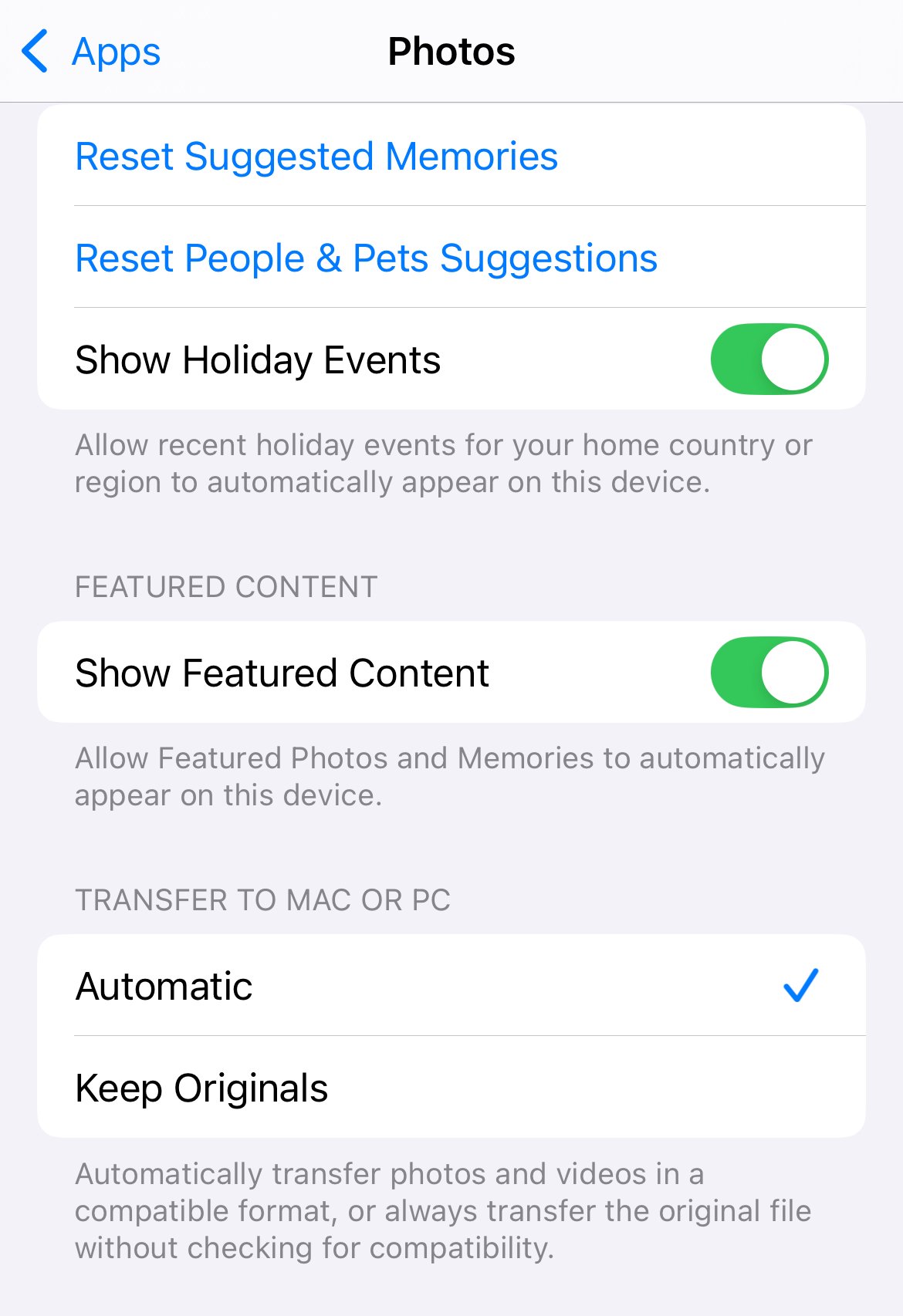How many browsers open it natively?
I can use HEIC on Arch (btw) just fine. As I recall there’s some bullshit you need to download on the Microsoft store to get it to work. It’s a pain in the ass.
As much as I love to hate on apple, any of this format shit is 100% Windows bullshit. It’s not just pictures, with shit like webm, or some random video codecs it’ll ask you to FUCKING BUY! But even shit like Windows only supporting some like 3 file formats from the god knows how many out there. Ever since I switched to Linux (heck, even fucking MacOS would do better) all this stopped being an issue. Fuck windows for literally only supporting their special selection of formats. There’s a good reason why the first step of many people installing windows is also Installing VLC or MUCH superior image viewers. Because Microsoft chooses to not support most things out there!
How many distros support h264/265 out of the box? They probably don’t support most HEIC images either since they’re HEVC on the inside
Exactly. Android’s default image format is HEIC as well. Jpeg is outdated and needs to die already.
All my default photos are jpg. What’s wrong with that?
JPG is not bad, but it uses more storage space for the same quality compared to HEIC/HEIF
Windows now supports other formats than BMP. It’s already a huge progress.
They started to support svg (which is 23 years old by now) in Office a month or so ago. What a time to be alive!
We even got GIF! Now that it’s starting to show its age.
PCX 😒
Have you got compatibility turned on in the photos app?

I didn’t take the photos.
This is not a coincidence, Apple purposefully make it painful to use anything with any of their products unless it’s one of their products
This is not an Apple thing. Android phones use HEIC by default as well. This is a good thing. HEIC uses smaller file sizes and has fewer artifacts than JPEG.
Yea … no, sorry to say but this one’s on Microsoft. I get it, hurr durr Apple expensive and elitist, but they know where to put up their walled garden and where not to. For example they used to have their own video container .mov but they’re way past forcing something like that onto iPhone users. And even back then, the actual codec they committed themselves to in those days was H.264, a standard that’s open to adoption by anybody. You can easily turn an old .mov into an .mp4 or .mkv without needing to alter the actual content of the file and that content is playable by pretty much every media device built in the last 15+ years.
HEIC isn’t Apple’s thing it’s from the MPEGroup, also easily licensable by anybody. I guess the reason why it wasn’t part of Windows 10 from the beginning is because they both came out in mid 2015. Windows 10 seems to have adopted it for viewing (and later editing) in 2018 but they make you hit a stupid download button in their store to get it so that’s lame.
Yep. Lack of format support is usually to blame on the one who doesn’t support the format. You can absolutely blame Apple for this too though, their apps can’t open e.g. Matroska video or FLAC.
And perplexingly, they don’t support uploading HEIC, their own image format of choice, on the web iCloud Photos. So there’s that too.
(At this point my music library is stored as ALAC because it’s well supported in both Linux and Apple’s OSes. Really wish it wouldn’t have to be that way though. Someone needs to tell them about ffmpeg.)
For example they used to have their own video container .mov
It’s always very very funny every time someone mentions MOV, because while it’s very similar to MP4, it’s actually an open format while MP4 isn’t (!). You actually have to pay for the MP4 standard document while Apple just gives you the MOV documentation.
Also at least taking a screen capture on macOS still gives you a MOV container, actually.
Apple made ALAC as an alternative to FLAC due to the dubious licensing around FLAC at the time.
well there ain’t no more licensing issues now are there
Yes they are no longer scared of the licensing enough most modern Apple devices do have at least some FLAC support.
Also ALAC is a free and open source codec which also has wide support.
And with a tool like FFMPEG you can easily convert between the two and they are both lossless so there is no data lost in the conversion.
So really just use whichever you like it really doesn’t matter.
since you seem to be knowledgeable about this, i wanna ask: do you think one should use .opus or .ogg as the file extension for OPUS files?
I think both work since opus is the codec but ogg is the container, but personally I’d probably go with .opus because it’s more descriptive.
Btw Apple’s ALAC and AAC files are typically stored in an mp4 container but with the m4a extension to mark it as intended to be audio only (although it may have a video track, which usually is used for album art).
HEIC is a much better-compressed format than JPEG that all Androids support; iirc JPEG XL (kinda dead) and Google’s WebP are the only other big-name formats with better photographic compression. Windows was the only major operating system that chose to have consumers separately pay the patent fee, none of which goes to Apple. Since Windows 11 22H2, HEIC images work out-of-the-box.
Webp breaks my balls, save a pic from online and it saves with the chrome logo and then doesnt work.
It’s kinda paradoxical. It’s undersupported simply because people don’t like it because it’s undersupported. At least all browsers can open it well.
Back when I was on windows I would rename .webp to .jpg (or was it .png, it’s been a long time) and it would open. Now I’m on Linux and it just works.
Better-compressed in saved Mbytes, but comparing images, that compression somehow looks more…fake. Hard to describe how.
For W10, you install an app to get the codec, then you’re done. It’s built in on W11. Same as HEVC video which is used very commonly in piracy. Are pirates out to make it “purposefully painful” or are they just using modern codecs? Android also can save to HEIC or AVIF.
Yeah it’s a bit of a tossup between them. Apple definitely chose it to be a dick. However, Microsoft could rectify it easily if they wanted to.
Both HEVC and HEIC thought cost money, and the vast majority of windows users will never use the codecs. Including the license with every copy of Windows is added cost to the end user that they receive no benefit from, so I understand why they would leave it out. HEVC prompts you if you try to play to go to the store and buy the license, which is good for your entire account. Honestly it’s not a terrible thing to do. I was one of the 1% of people who would play HEVC natively on Windows, so yeah the $3 license made sense
Apple definitely chose it to be a dick.
What other image format supports HDR and modern compression algorithms? AVIF also requires a special codec. This is just codec stuff, I really don’t see it as anyone being a dick. Android can also use these modern formats, with the same requirements if you want to open them on Windows.
Kinda surprising to me that people so frequently recommend using Linux here, yet taking 30 seconds to install a free codec on Windows is apparently a big deal.
OpenEXR. Though it probably could use a spec upgrade, in particular add JPEG-XL to the list of compression algorithms. It’s not like OpenEXR’s choices are bad, the lossy ones are just more geared towards fidelity than space savings, kind of the opposite of what you want for the web where saving space is often paramount and fidelity a bonus.
Bonus: Supports multi-channel, so not just RGBA. Not terribly useful for your run off the mill camera, very useful in production where you might want to attach the depth buffer, cryptomatte etc and I guess you could also use it for the output of light field cameras. Oh there’s also multi-view so you can store not just stereo images but also whole all-around captures and stuff. There’s practically nothing pixel-related you can’t do with it though it might require custom tooling.
I literally said it was easy to do.
Let’s try this again: in a world where Apple is not a dick, what modern image format do they use that isn’t subject to these same codec requirements?
If they were doing this just to be dicks, they’d spin off one of their own formats like they did with ALAC. They didn’t, they used HEIC which was also used by Android (which is now using AVIF).
Get yer logic out of here
Answer the question
What other image format supports HDR and modern compression algorithms that don’t require a license?
There, ftfy. You answer the question.
- are you implying that there is indeed no better choice?
- webp, but that’s google. jpeg xt, but i see virtually no one adopting that.
I dunno, JPEG XT maybe? At a loss here.
Why did Android also use HEIC, did they choose this just to be a dick like Apple?
I just plug a cable from my iPhone to my Linux mint laptop and view/transfer what photos I want through my file browser… seems real easy.
You could use KDE Connect and do it wirelessly as well. Who needs cables for anything but charging these days?
I use the cable to charge my phone. Am I the only person still doing this?
I was mostly joking, but KDE Connect has made phone-to-PC transfers much more convenient for me. I’ve only tried it between Android and Linux, but once connected, it basically nounts my phone as a drive that I can browse or copy/paste to and from.
Generally, I only use a cable to charge, and I rarely need/want to transfer files at the same time as I want to charge.
That looks pretty good - might investigate if I can use it without WiFi, i.e. just using mobile data.
I’m a bit weird as I’ve never had any IT training but have been using all types of computers for about 40-ish years. Back in the day I had a psion 5mx running epoc OS. To transfer a Word (Not to be confused with MS’s Word) file I had to convert it to .txt or .rtf and then save it to a compact flash 8mb memory card. Remove that card from the psion, plug in the CF card reader to my iBook (dual boot OS 9.1.2 and Mac OS X) and import the text. For some reason these files were always read only so then you open a new Jotter file and copy and paste the text over. Absolute ballache. Easy file transfer is a holy grail of digital living.
Someone tried to send me a picture they took and it looked like hot garbage until they sent it over email. Not because it couldn’t be sent without feeding it through a potato first, because Apple wants a worse experience for anyone not in their ecosystem.
When they are the oddball in the group though, it just makes iPhone’s look like a worse option.
Same thing with the M4A music format. My Mac struggles to read MP3s in most programs (other than Preview). I have to convert them to M4A if I want to import them anywhere.
Preview does not play MP3 or AAC.
And what’s a program that’s not accepting of MP3 files that generally works with audio?
You seem to be a bit confused.
I don’t think you understood my comment. My Mac just hates mp3s. Programs like Audacity and Audio Timeliner always struggle with them unless I convert them to m4a first. Never was an issue on Windows. Preview will play them but that’s about the only program that doesn’t hate them.
Preview is an app on macOS for viewing and editing images and PDFs.
According to the Audacity manual it supports MP3. But you need to install additional software for AAC (M4A).
https://manual.audacityteam.org/man/importing_audio.html
So it’s strange that you are struggling with this. It seems something more is going on here…
Also, just in case it was confusing: M4A is just a file extension used to indicate AAC audio in an MP4 container.
That’s a bummer that AudioTimeliner is struggling with MP3 files. Small independent apps like this usually depend on outside libraries to play back audio. And looking at the version history, it looks like the author has had to make multiple updates to fix playback support over the years.
I see that AudioTimeliner is niche software that has been around for about 22 years, and it’s cross platform. It seems normal to me that it would be picky. Audacity on the other hand, something weird is going on.
I work in higher education, so I understand how relying on niche software like AudioTimeliner goes. I’m sympathetic.
But there is a lack of precision in what you are describing, and your symptoms are directly counter to the Audacity documentation.
However, they still forget that working with their products is the worst pain in the arse.
GIMP opens HEIC and WEBP files and it’s available on all operating systems.
You can change this in Settings > Camera > Formats > choose Most Compatible to change from HEIF/HEVC to JPEG/H.264
EDIT: I use XnViewMP to browse photos and it can convert HEIC to JPG and HandBrake can handle HEVC to MP4 or MKV.
It becomes a problem if you didn’t take the photos.
Ffmpeg
I just use Image Glass as image viewer and Icarus for the miniatures. For the videos I use MPC-HC.
Not sure if it works for HEIC, but here’s a tip for converting WEBP (common on websites) to a more universal format like PNG:
1: open Paint
2: open .WEBP in paint
3: save as -> PNG
4: give name and saveThere’s also a Firefox extension that I use that that lets you just save as PNG https://addons.mozilla.org/en-US/firefox/addon/save-webp-as-png-or-jpeg/
Or even better, use ImageMagick.
I use an open source video codec library in Windows 10 but I’m away from my computer for a while and cannot tell you.
deleted by creator
I considered that, but it’s a paid app - yes it’s only a token amount (99p in UK, ymmv) but just as a point of principal, am I fuck paying extra just to be able to open some photos.
I was referring to “HEVC Video Extensions from Device Manufacturer”, which was free, but I just learned that it was taken down a year ago.
Ah, that’s a shame. Thanks anyway though :-)
Possibly Linux?
Not the time, not the place. As a Linux user seriously no, just no. People like you are the reason Linux users are seen as unhelpful and toxic, this is a codec issue not an OS issue.
Read my username
It is for the memes
This is a work problem and a lot of software we use isn’t supported on Linux.
Possibly?
At minimum, we would need AutoCAD, Microstation, and Projectwise. We also need these exact programs as our clients require our CAD submittals to be in specific formats.
We also need Bluebeam Revu for other client coordination.
Thanks for the serious reply but I was just doing the “username checks out” thing
My username is possibly Linux so sometimes I just reply to random posts with possible linux as a joke.
I know, but my response sparked further discussion so it’s cool.
AutoCAD
It’s always funny with 3d. Graphics? You need Houdini? Of course it runs on Linux, it’s a UNIX-native program after all, first version ran on IRIX because what else would you use for 3d work but an SGI workstation and Linux is the commercial successor to IRIX. Blender, the same, just 5k bucks cheaper (and not everything is nodes, not yet). CAD? Everything’s suddenly windows-only because… how the hell did that came to be? Were they running 1990’s CAD software on Excel machines?
Neither Autodesk nor Bentley had a good economic reason to develop in Linux. Those companies also spend a lot of money on major clients to produce tools for them, which they then force all contractors to use.
I mean back in the days they should have been running on IRIX, and SGI switched over to Linux when they made the switch to x86 CPUs. Plenty of movie studios switched over to Linux workstations because of that, porting from IRIX to Linux is trivial compared to porting to Windows, why didn’t the same happen with CAD?
Wintel-PCs for the longest time just weren’t suitable for 3d work, they were office machines.
Both programs were developed to work on high end consumer laptops, which meant being able to work on IBM PC and therefore DOS.
Those programs also were likely 2D in their initial versions in the 1980’s. They were also competing against human drafting, which was considered to be industry standard at the time.
Cost and ease of use were likely more important than other potential users of 3D software, so they went with DOS and made the transition to Windows.
Yeah I hate this too - one of my clients regularly supplies images as HEIC files and they are always crappy to work with. Plus the images just seem much lower quality, which is a problem when they are being used for professional purposes.














